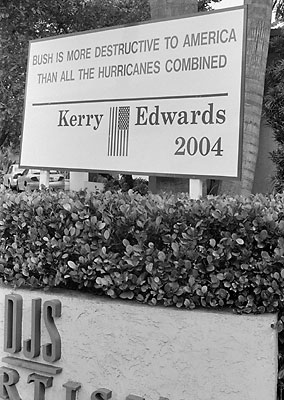One of the things that has always frustrated me is the way that some individuals will place the blame for a traumatic event on someone who really has no responsibility for said event.
Case in point is this post from today’s Strategypage.com. (Post from October 18, 2004.) It would seem that Haiti’s current civil war is heating up, with more violence breaking out between the government and supporters of ousted President Jean-Bertrand Aristide. But the real news is who the UN thinks is to blame.
The commander of the UN peacekeepers blames U.S. senator John Kerry for much of violence, because earlier this year Kerry said that if he were president he would have sent American troops to protect Aristide. This, the UN commander believes, encouraged Aristide’s followers to start fighting.
I really don’t agree with this at all. I doubt many people involved with the street fighting in Haiti have a great deal of interest in what a candidate for the US Presidency has to say in a speech in Iowa. The UN commander is probably just trying to lay the groundwork when someone inevitably blames him for not doing something. (Not that any UN commander in recent history has been able to do any real peacekeeping without the Anglosphere doing the heavy lifting.)
In related news, CNN reports that Russian President Vladimir Putin has urged US voters to mark their ballots for President Bush this election.
Russian President Vladimir Putin says terrorist attacks in Iraq are aimed at preventing the re-election of U.S. President George W. Bush and that a Bush defeat “could lead to the spread of terrorism to other parts of the world.”
While I don’t agree with the comments from the UN, I have to admit that the Russian President makes a great deal of sense.
(Now I’m agreeing with the Russians! How the world has changed in a few short years.)
